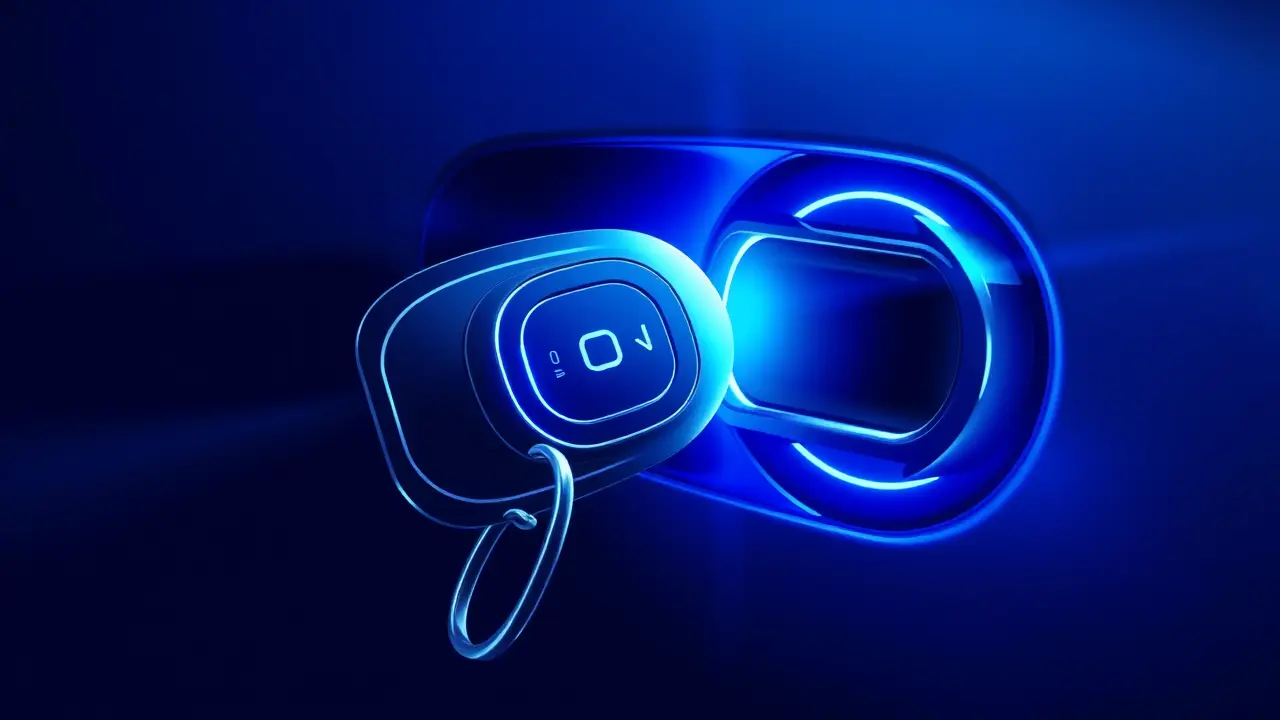
Otherauto & mobilityElectric Vehicles
Why Are We All Still Carrying Around Car Keys?
AN
Andrew Blake
17 hours ago7 min read2 comments
The humble car key, a piece of technology that has jangled in our pockets for generations, is facing an existential crisis, and the entire automotive industry is scrambling to figure out what comes next. It’s a surprisingly fascinating puzzle that sits at the intersection of hardware, software, and sheer human habit.Ford, for instance, is experimenting with integrating a key into a belt buckle, a solution that feels both incredibly futuristic and oddly retro, like something from a 1980s sci-fi flick. It solves the problem of the bulky, pocket-destroying fob, but it also highlights the core issue: why are we still carrying a dedicated physical object for this single task at all? We’ve consolidated our cameras, our maps, our music libraries, and our communication hubs into one sleek rectangle in our palms, yet the car key remains stubbornly separate.The logical next step, which companies like Tesla have already mainstreamed, is the phone-as-a-key. This technology uses Bluetooth Low Energy to allow your vehicle to detect your smartphone’s proximity, automatically unlocking the doors and enabling the start button as you approach.It’s seamless when it works, offering a glimpse of a truly keyless future. However, this promising tech is already on the verge of being leapfrogged.The smartphone itself might be the interim step, not the final destination. The next frontier is biometrics and ultra-wideband (UWB) radio technology.Imagine your car authenticating you via a fingerprint sensor on the door handle or a facial recognition scan through a discreet camera, technologies that are not only more secure but also eliminate the need to even take your phone out of your pocket. UWB offers centimeter-level precision, preventing so-called relay attacks where thieves amplify the signal from your key fob inside your house to steal the car parked outside.The ultimate endgame, however, is the car itself as the key. With robust, cloud-connected digital profiles, your identity, seat preferences, climate control settings, and even your favorite playlists could be stored securely online.You’d simply walk up to any car from a subscription service or rental fleet, and it would recognize you instantly, configuring itself to your personal specifications. This shift isn’t just about convenience; it’s a fundamental re-architecture of the relationship between driver and machine.The challenge, as with any technological transition, is the messy middle period. We are currently in an era of frustrating fragmentation.Some cars still use traditional keys, most have fobs, a growing number offer phone-as-key, and a select few are dabbling with biometrics. This creates a user experience that is anything but smooth.Furthermore, the reliance on a smartphone introduces its own vulnerabilities—a dead battery, a software glitch, or a forgotten phone can leave you truly stranded in a way that a simple, dumb metal key never could. There’s also a cultural and psychological element at play.For many, the physical act of turning a key or pushing a start button is a satisfying ritual that marks the beginning of a journey. The complete dematerialization of that action might feel like a loss, a small but meaningful disconnect from the mechanical soul of the automobile.The race to kill the car key is, therefore, more than just a tech story; it’s a story about how we adopt new interfaces, manage digital security, and ultimately, how we define our interaction with the machines that move us. The key isn't just disappearing; it's evolving into something invisible, woven into the fabric of our digital identities, and the journey to that future is far more complex than anyone could have imagined.
#featured
#car keys
#key fobs
#phone as a key
#Ford
#automotive technology
#digital access
Stay Informed. Act Smarter.
Get weekly highlights, major headlines, and expert insights — then put your knowledge to work in our live prediction markets.
© 2025 Outpoll Service LTD. All rights reserved.